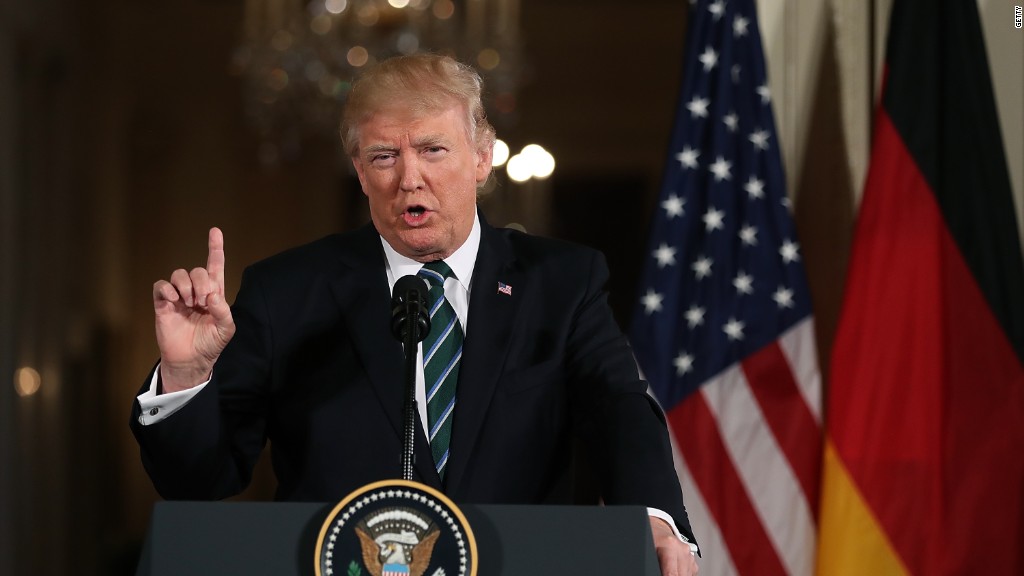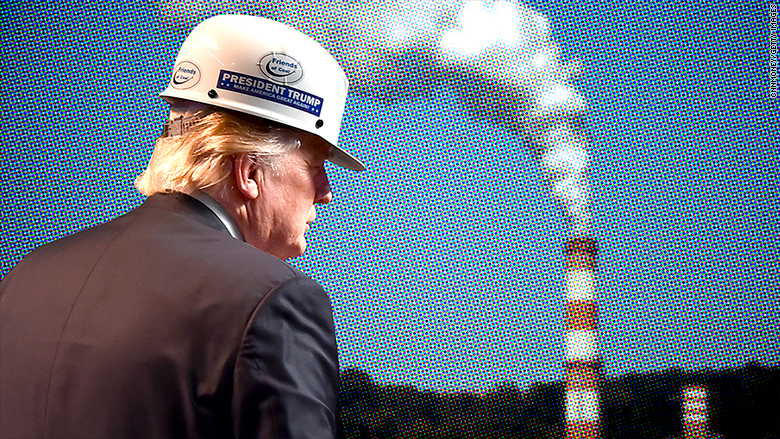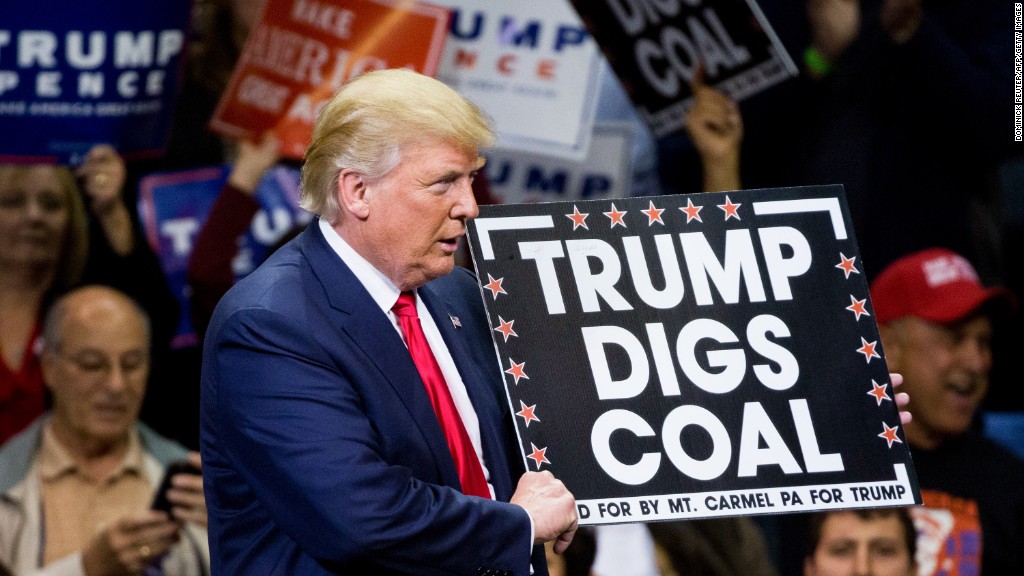
President Trump has risked starting a trade war by deciding to pull the U.S. out of the Paris climate accord.
That's the assessment of trade experts who argue that other countries could respond by slapping tariffs on American products that are cheaper to produce as a result of the move.
"It's not a pretty picture by any means," said Dirk Forrister, head of the International Emissions Trading Association. "This isn't something that businesses typically like."
Dropping the Paris agreement could help American companies produce products like steel at a lower cost than global rivals.
And punitive trade measures would be one way for U.S. trading partners to level the playing field.
The tool they could use is called a "carbon tariff," which would act as a tax on U.S. goods crossing their borders. The more carbon pollution used to make a product, the higher the tax would be.
"It's basically throwing the fairness issue back in the face of the Trump administration," said Jeff Schott, a trade expert and senior fellow at the Peterson Institute for International Economics.
Related: How the Paris climate deal helps business
Schott, who has written extensively on trade and climate change, said countries wouldn't immediately move to a carbon tariff. But as they continue to implement cleaner carbon policies, resentment toward the U.S. could grow.
"This is something that is a potential threat against U.S. firms," he said.
Corporate America is well aware of the risk. On Thursday, 25 major U.S. firms warned Trump in an open letter that "withdrawing from the agreement ... could expose us to retaliatory measures."
The letter was signed by Apple (AAPL), Facebook (FB), Google (GOOGL), Morgan Stanley (MS), Microsoft (MSFT), Salesforce (CRM), Unilever (UL) and Gap (GPS).

Related: Trump's threat on Paris deal may risk job growth
Any tax or tariff imposed on U.S. firms would be a logistical and political challenge.
"Carbon tariffs are a great idea in the classroom... [but] it's harder to translate into practical policy," said Gregor Irwin, chief economist at strategic advisory firm Global Counsel.
They would be especially unfair for California-based industries that abide by strict state rules on carbon emissions.
The biggest risk is that a carbon tariff on U.S. goods might spark a tit-for-tat response from the Trump administration that leads to a major trade conflict.
"If any country introduces a carbon tariff, there's a risk other countries could impose restrictions of their own," Irwin said. "You just risk getting embroiled in a good old-fashioned trade war."

Calls for a carbon tariff remain muted. But the idea has reportedly been floated by Mexican officials as well as the former French president Nicolas Sarkozy.
Canada and Mexico would want to be especially careful about retaliation from the U.S. as they work to renegotiate the North American Free Trade Agreement with the Trump administration.


